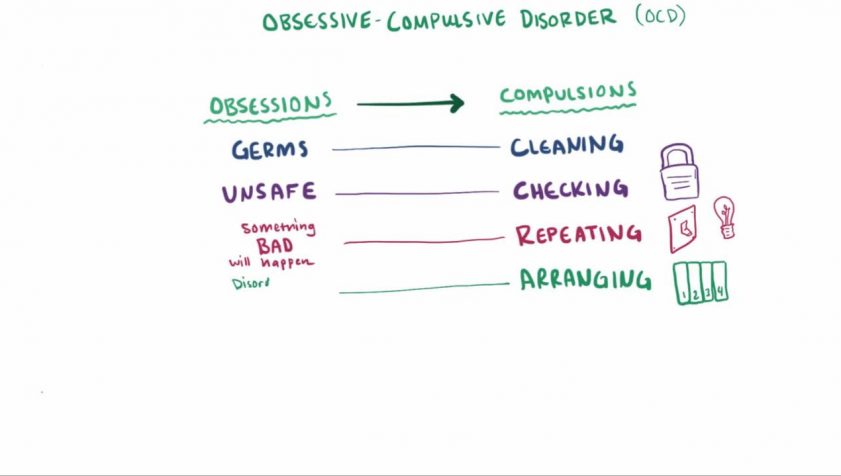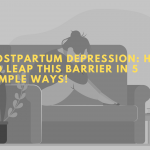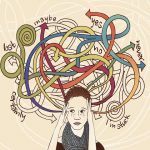What Is Obsessive-Compulsive Disorder??
Do you ever wonder about what is the big deal if I keep washing my hands every now and then?? This is not supposed to be a bad habit in fact it is hygienic to do so, isn’t it??
I don’t consider it to be any kind of disorder, and by the way What is obsessive-compulsive disorder?? And why do my friends suggest that I must get myself shown to a psychiatrist??
I mean I can’t really notice any change in myself then why should I consult a psychiatrist after all I am not crazy!!
You too come across similar suggestions from your friends and closed ones just like me on a regular basis, don’t you??
Well, then maybe you should give this article a look!! Here we will talk about what is obsessive-compulsive disorder, a mental disorder that is hardly noticeable to the person suffering from that disorder…
What Is Obsessive-Compulsive Disorder
Obsessive-Compulsive Disorder (OCD) is an anxiety disorder that influences individuals of all ages and coming from all walks of life.
This happens when an individual gets trapped in a pattern of obsessions and compulsions. This somewhat clears your vision about what is obsessive-compulsive disorder now let’s read further:
Obsessions are undesirable, nosy considerations, pictures, or urges that trigger seriously troubling sentiments.
Compulsions are practices an individual takes part in, and work hard to dispose of the obsessions and additionally decline their pain.
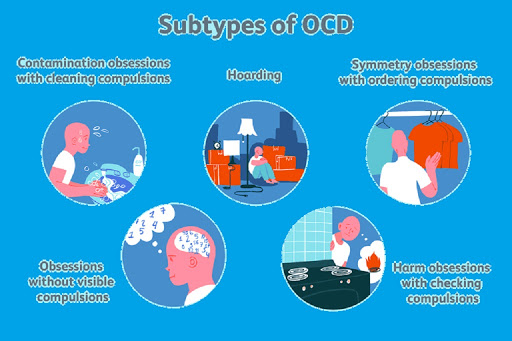
Numerous individuals have centered musings or rehashed practices. In any case, these don’t upset everyday life and may include structure or make errands simpler.
For individuals with OCD, contemplations are steady and undesirable schedules and practices are inflexible, and not doing them causes extraordinary pain.
Numerous individuals with OCD know or suspect their obsessions are not valid; others may figure they could be valid (known as poor knowledge).
Regardless of whether they realize their obsessions are not valid, individuals with OCD make some hard memories maintaining their concentration off the obsessions or halting the urgent activities.
A determination about what is obsessive-compulsive disorder requires the nearness of obsession and additionally compulsions that are tedious (over one hour daily), cause significant pain, and disable work, social, or other significant capacities.
About 1.2 percent of Americans have OCD and among grown-ups, somewhat a greater number of ladies than men are influenced yet are completely unaware of what is obsessive-compulsive disorder. OCD regularly starts in youth, puberty, or early adulthood; the normal age manifestations show up is 19 years of age.
What Precisely are Obsessions and Compulsions?
Obsessions are considerations, pictures, or driving forces that happen again and again and feel outside of the individual’s control. People with OCD would prefer not to have these considerations and discover them upsetting.
As a rule, individuals with OCD understand that these contemplations don’t bode well. obsessions are regularly joined by extraordinary and awkward emotions, for example, dread, appall, question, or an inclination that things must be done in a manner that is “perfect.”
With regard to OCD, obsessions are tedious and impede significant exercises the individual qualities. This last part is critical to remember as it, to a limited extent, decides if somebody has OCD — a mental disorder — instead of an obsessive character attribute.
Lamentably, “obsessing” or “being obsessed” are ordinarily utilized terms in a consistent language. This progressively easygoing employment of the word implies that somebody is engrossed with a subject or a thought or even an individual.
“Obsessed” right now doesn’t include disorders in everyday living and even has a pleasurable segment to it.
You can be “obsessed” with another melody you hear on the radio, yet you can, in any case, meet your companion for supper, prepare for bed in an opportune way, find a good pace time toward the beginning of the day, and so on., notwithstanding this obsession.
Truth be told, people with OCD make some hard memories hearing this use of “obsession” as it feels as if it decreases their battle with OCD indications and knowing more about what is obsessive-compulsive disorder.
Regardless of whether the substance of the “obsession” is increasingly genuine, for instance, everybody may have had an idea occasionally about becoming ill, or stressing over a friend or family member’s security, or thinking about whether an error they made may be disastrous here and there, that doesn’t mean these obsessions are fundamentally manifestations of OCD.
While these considerations look equivalent to what is obsessive-compulsive disorder as well, somebody without OCD may have these contemplations, be immediately concerned, and afterward proceed onward.
Actually, studies have demonstrated that a great many people have undesirable “meddlesome musings” every now and then, yet with regards to what is obsessive-compulsive disorder, these nosy considerations come as often as possible and trigger outrageous uneasiness that hinders every day working.
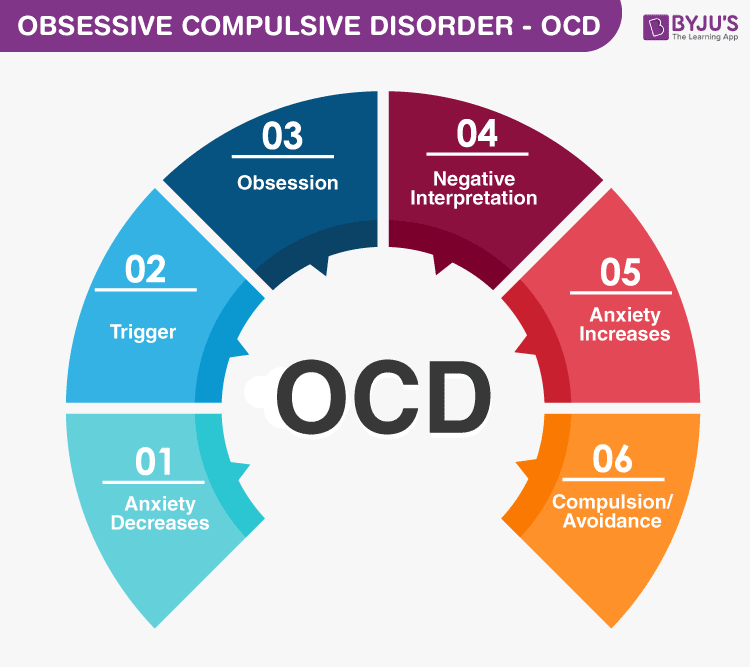
Compulsions are the second piece of the obsessive habitual disorder. These are redundant practices or considerations that an individual uses with the goal of killing, balancing, or causing their obsessions to leave.
Individuals with OCD understand this is just a brief arrangement yet without a superior method to adapt they depend on the impulse as an impermanent getaway. Compulsions can likewise incorporate evading circumstances that trigger obsessions.
Compulsions are tedious and hinder significant exercises the individual qualities.
Like obsessions, not every single dreary conduct or “customs” are compulsions. You need to take a gander at the capacity and the setting of the conduct.
For instance, sleep time schedules, strict practices, and learning another expertise all include some degree of rehashing an action, again and again, however, are normally a positive and utilitarian piece of everyday life.
Practices rely upon the specific situation. Orchestrating and requesting books for eight hours daily isn’t an impulse if the individual works in a library. Also, you may have “urgent” practices that wouldn’t fall under OCD, on the off chance that you are only a stickler for subtleties or like to have things perfectly orchestrated.
Right now, it alludes to a character quality or something important to you that you really like or want. As a rule, people with OCD feel headed to participate in enthusiastic conduct and would prefer not to do these tedious and ordinarily painful acts.
In OCD, urgent conduct is finished with the goal of attempting to get away or lessen uneasiness or the nearness of obsessions
Risk Factors
While reading about what is obsessive-compulsive disorder one must know that OCD is a typical disorder that influences grown-ups, teenagers, and youngsters everywhere throughout the world.
A great many people are analyzed by about age 19, regularly with a prior time of beginning in young men than in young ladies, yet beginning after age 35 happens. The reasons for OCD are obscure, however, risk factors include:
Hereditary Qualities
Family contemplates have demonstrated that individuals with first-degree family members, (for example, a parent, kin, or kid) who have OCD but are unaware of what is obsessive-compulsive disorder are at a higher risk for creating OCD themselves.
The risk is higher if the primary degree relative created OCD as a kid or adolescent. Continuous research keeps on investigating the association among hereditary qualities and OCD and may help improve OCD analysis and treatment.
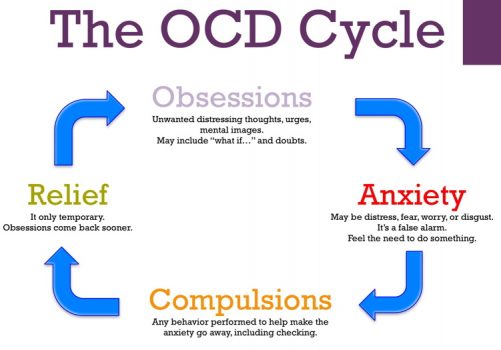
Brain Functioning
Imaging examines have demonstrated contrasts in the frontal cortex and subcortical structures of the cerebrum in patients with OCD.
There have all the earmarks of being an association between the OCD side effects and anomalies in specific regions of the mind, however, that association isn’t clear.
Research is as yet in progress. Understanding the causes will help decide explicitly, customized medications to treat OCD and will help us get a better view of what is obsessive-compulsive disorder.
Surroundings
A relationship between youth injury and obsessive enthusiastic indications has been accounted for in certain investigations. More research is expected to comprehend this relationship better.
Sometimes, kids may create OCD or OCD side effects following streptococcal contamination—this is called Pediatric Autoimmune Neuropsychiatric Disorders Associated with Streptococcal Infections (PANDAS).
Conclusion
Now you know what is Obsessive-Compulsive Disorder and what are the risk factors of this disorder!! OCD is probably an incurable disease but can be at least controlled by proper treatment, therefore, you must consult a good psychiatrist to get proper aid for this disorder.
Found The Problem??
Now, since you know what is obsessive-compulsive disorder and have found out if you are suffering from the same or not, therefore, it’s time you must seek help in case you have Obsessive-Compulsive Disorder. In order to get the help, you can either call at 9889493508 or visit us online to get a session booked for yourself.

